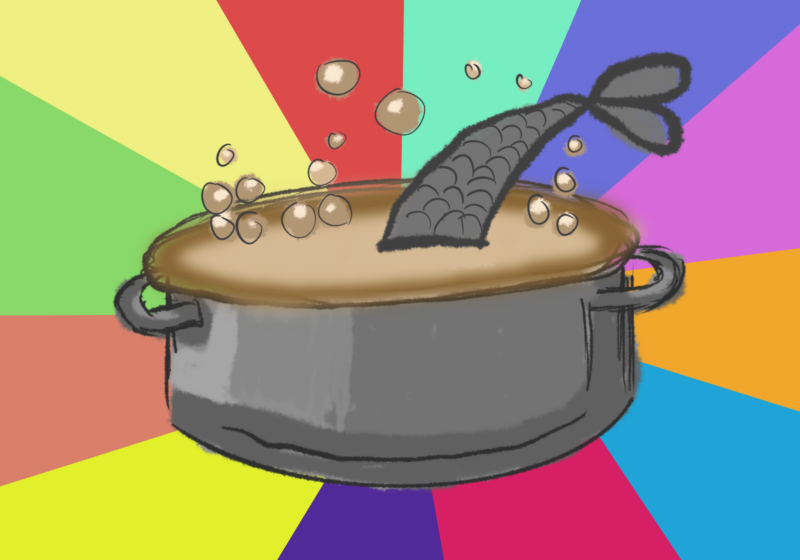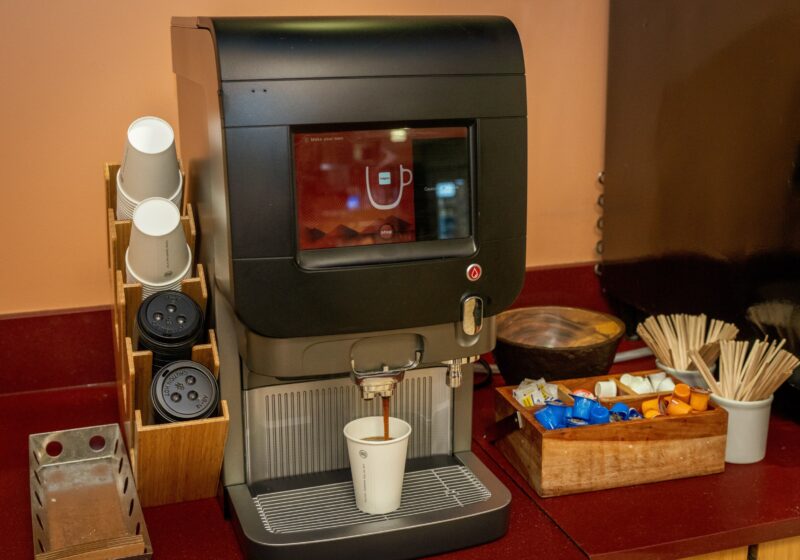President ponders election problems
Springtime! A hopeful time of year when the trees blossom, clocks spring forward and freshmen begin hearing tales of UR’s yearly reenactment of the invasion of Normandy. Springtime also means an election scandal is imminent, particularly of the Presidential variety. Inevitably, someone breaks some rule – usually inadvertently, the election committee decides they need to do something and the decision ends up going before ACJC. As a former election committee chair and SA Presidential candidate, I have a few suggestions for how to avoid these problems in the future.
Get rid of spending limits. It’s a noble idea, but honestly, SA elections don’t need spending limits. If a candidate honestly spends $200 on flyers, then he or she is a fool, and people shouldn’t vote for them anyway.
Toss out the election timeline. So what if someone starts campaigning in January? If everyone can do it, then it’s fair game.
Eliminate all the other silly rules too. People should be able to put posters anywhere they want within the confines of existing rules like where you can flyer in Wilson Commons. Students aren’t dumb, just because they see a flyer in a voting area doesn’t mean they’ll vote for that person.
Finally, please just hand the administration of elections over to the Student Activities Office. The SAO already runs the Class Council elections and does so quite well too. I know senators aren’t comfortable delegating responsibility to SAO, but clearly, elections need a professional touch. If those things were to happen, then maybe, just maybe, springtime would be known for better things than ugly, divisive elections squabbles.
– Pete NaboznyFormer SA Preisdent Class of 2005
Axing Eastman strikes a point
As a former Eastman editor, I was saddened to see the disappearance of the Eastman section from the Campus Times, but it came as no surprise. I hoped the elimination of the Eastman Section would happen because Eastman students amalgamated into the university community, taking advantage of all the things that it has to offer, therefore eliminating the need for a separate section. Instead Eastman still functions as something the university uses only in recruiting materials.
The elimination of the Eastman section points to a problem within the school itself. Faculty and members of the administration should push students to participate in worthwhile activities like the CT. Instead, non-musical pursuits are discouraged because they take away from practice time. The school hides behind HUM 101 and 102, two classes in which A’s can easily be achieved with Cliffs Notes, and claims to be the most academic of the top music conservatories.
If Juliard students are anything like Eastman students, they’re probably graduating and entering a world where performing jobs are becoming scarce and more competitive, without the skills that make them competitive in the workforce when they don’t land that performing job.
If a student graduates from Eastman and becomes something other than a performer because he found another interest, the school hasn’t failed – it has succeeded in opening a door and providing him with new skills and other opportunities.
Hopefully the Eastman section will never return because its students become part of the university community. Until then, when members of the Eastman community open up the CT and don’t see the Eastman section, they should take note of the fact that perhaps the next entrepreneur, the next physical therapist or even the next journalist may have been lost to one extra hour in a practice room.
– Kim Gorode Former Eastman and Comics Editor Class of 2005
Not tons of activists, but many still
In response to “Active Shutdown,” (April 13) I would like to state that while the activist community here at UR is not huge, activists are certainly not in “short supply.” The activist community is actually growing. Grassroots regularly gets about 40 people at their meetings, Students for Social Justice gets about 20 and Amnesty gets about 15. That does not count the members of Women’s Caucus and SAVVY – Student Association of Vegetarian and Vegan Youth. Not only have the memberships of these groups either been steady or increasing, but they are beginning to work together more for a more well-coordinated activist voice.
Also, students from these groups are working together to create institutional change in the form of a campus sustainability policy so that we can provide for the current needs of the university without compromising the needs of future generations. This policy would tie together environment, social and economic responsibility through many means including green buildings and curriculum integration.
By working together and getting more students involved, activists are making slow but steady progress on campus. Students in the activist community work hard every day to make this campus and the community a better place for current and future UR students. To say that there are “so few activists on this campus” is to be misinformed.
– Katie SharpStudents for Social Justice Co-PresidentClass of 2007
Critique Criticized
Meredith Lepore’s statement (“The Play’s Not the Thing,” April 13) that there is “a notion ? that art has to be deep, dark and complex to have any meaning” ignores the fact that art that stakes a claim to truth and meaning deals with life in all its sordid, joyous, treacherous and gorgeous diversity. It explores it, evokes it, challenges our notions of it and illuminates it. And life is deep, complex and, all too often, dark.
Ms. Lepore laments that Todd productions have been “incredibly obscure, abstract, and excessively depressing for the last four years.” The vast majority of plays we have presented are pretty major works by anyone’s standards: Shaw’s “Major Barbara,” Fo’s “Accidental Death of an Anarchist,” Ionesco’s “The Bald Soprano,” Shakespeare’s “Hamlet,” Pirandello’s “Six Characters in Search of an Author,” Ford’s “‘Tis Pity She’s a Whore,” and Marivaux’s “The Triumph of Love,” to name a few. Almost all have played on Broadway.
Lepore complains that after Doctor Faustus she was “unable to speak to anyone for an hour as I tried to process what I had seen.” Isn’t that what art is supposed to do? Leave us thinking about its meaning, pondering its structure, challenged by its complexity? Lepore, by contrast, wants something that lets her “leave the theater with a warm, fuzzy feeling in [her] heart.” But “warm and fuzzy” are the province of Hallmark cards, not the province of art – or theatre.
What Ms. Lepore seems particularly to object to is the content of Todd shows. The plays she chooses to single out as worthy vehicles are, however, hardly examples of clean living and family values – “Elektra” – patricide, murder, and adultery, “Death of a Salesman” – suicide, adultery, betrayal, “Romeo and Juliet” – murder, death, and parental abuse, “The Prime of Miss Jean Brodie” – betrayal, revenge, fascism, and mind-control, “The Glass Menagerie” – dysfunction, abandonment, and neurosis and “A Doll’s House” – sexism, abandonment, spousal cruelty and manipulation.
The real issue here is that what Lepore means by entertainment and what we in Todd mean by entertainment, are different. For us, entertainment means being engaged: – by the work and by its relationship to our world: a world that is complex, deep, often obscure and abstract, sometimes depressing and all too often dark. This is an active endeavor which contrasts with Ms. Lepore’s passive view of entertainment. Our amazing, talented students work so hard and dedicate so much of their time and effort to creating the productions precisely because our plays offer them significant intellectual, emotional and technical challenges. Though perhaps not to her taste, Todd exemplifies both what theater should be and do and also the role of the arts in a university setting – to stimulate and challenge its audience, its practitioners and its time, to entertain w
ithout pandering, to provoke without offending, to tell stories – human stories – in surprising and arresting ways and to open the eyes, ears, hearts and minds of all who are open to letting that transcendent experience – and it is an active, not a passive one – enter their lives.
– Nigel MaisterArtistic Director, UR International Theatre Program




